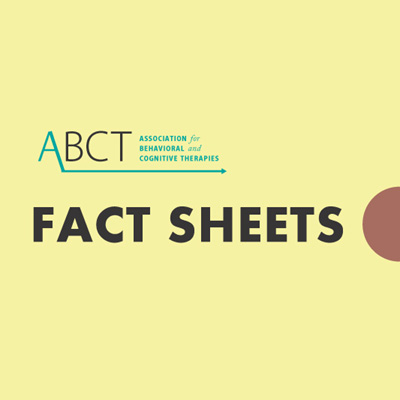What is Cognitive Behavior Therapy?
Behavior Therapy and Cognitive Behavior Therapy are types of treatment that are based firmly on research findings. These approaches aid people in achieving specific changes or goals.
Changes or goals might involve:
A way of acting: like smoking less or being more outgoing;
A way of feeling: like helping a person to be less scared, less depressed, or less anxious;
A way of thinking: like learning to problem-solve or get rid of self-defeating thoughts;
A way of dealing with physical or medical problems: like lessening back pain or helping a person stick to a doctor’s suggestions.
Behavior Therapists and Cognitive Behavior Therapists usually focus more on the current situation and its solution, rather than the past. They concentrate on a person’s views and beliefs about their life, not on personality traits. Behavior Therapists and Cognitive Behavior Therapists treat individuals, parents, children, couples, and families. Replacing ways of living that do not work well with ways of living that work, and giving people more control over their lives, are common goals of behavior and cognitive behavior therapy.
How to Get Help
If you are looking for help, either for yourself or someone else, you may be tempted to call someone who advertises in a local publication or who comes up from a search of the Internet. You may, or may not, find a competent therapist in this manner. It is wise to check on the credentials of a psychotherapist. It is expected that competent therapists hold advanced academic degrees. They should be listed as members of professional organizations, such as the Association for Behavioral and Cognitive Therapies or the American Psychological Association. Of course, they should be licensed to practice in your state. You can find competent specialists who are affiliated with local universities or mental health facilities or who are listed on the websites of professional organizations. You may, of course, visit our website (www.abct.org) and click on “Find a CBT Therapist”
The Association for Behavioral and Cognitive Therapies (ABCT) is an interdisciplinary organization committed to the advancement of a scientific approach to the understanding and amelioration of problems of the human condition. These aims are achieved through the investigation and application of behavioral, cognitive, and other evidence-based principles to assessment, prevention, and treatment.


